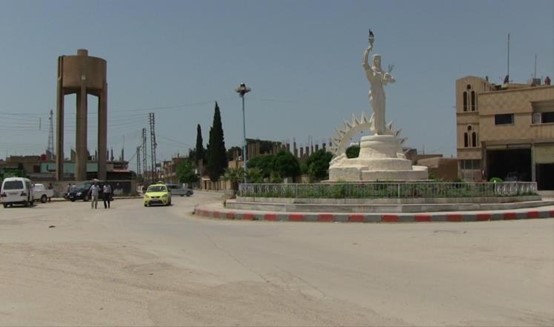Amouda, is a sweet city, the city of Mohammad's father, the city of intellectuals and authors. Amouda is one of the most beautiful cities in the Western part of Kurdistan. Amouda or "Orkesh" was also known as "Merdin Plain" and the Ottomans used to call it "Gre Kemaliye". According to the elderlies' stories, the story of Amouda's name is: Merdin's king's daughter gave birth to a boy who craved blood. Thus, the king ordered to take the boy out of the city and leave him near a place that is now known as Girdi Amouda. However, some men were passing by that place, they saw that a baby boy was tied to an Amouda (a pillar). Those men told the story and spread it and thus, the name of the city became Amouda." Later, a village was built near that hill (Girdi Amouda) called Amouda. Now, that village has turned into an ancient and historical city. The most interesting point is that even nowadays when people pass by this city, they see the historical and ancient city of their ancestors. Thus, Amouda is one of the oldest cities in the Western part of Kurdistan.
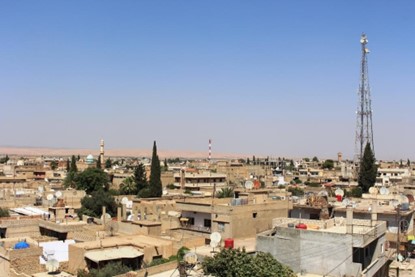
The History of Amouda
According to experts, the history of Amouda traces back to three thousand years BC. Amouda was a part of Merdin. After 1926, when the borders were determined and Kurdistan was torn into different parts, Amoudi was a part of Qamishlo until 1946, but after the French left Syria, this city became a part of Hassaka.
Most of this city's residents are Kurdish people and a number of Christians are living here, too. Amouda is built in a plain and it is located on the border of the West and the North parts of Kurdistan on the south of Niseybin city. Niseybin city is also visible from Amouda. Amouda is 30 kilometers away from Qamishlo and 75 kilometers from Hassaka. This city's area is 990 thousand square kilometers.
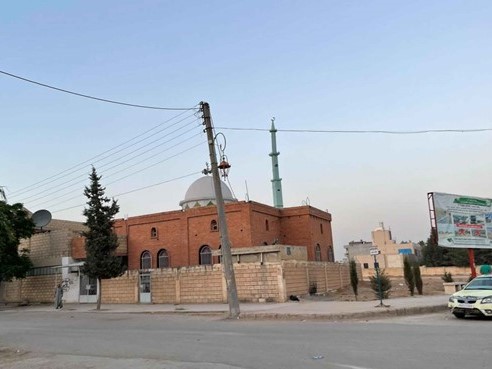
Production in this city
Most of the people of Amouda are occupied in agriculture and farming and some of them make handcrafts for a living. About 160 villages belong to Amouda city. In summer this city is hot and in winter it is cold. It is not blessed with forests and greenery. The agricultural products of this city include wheat, barley, lentils, chickpeas, etc. Agriculture plays the main role in the economy of this city.
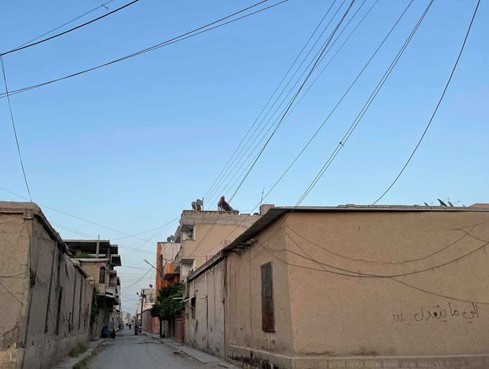
The historical places
There are three historical hills in Amouda: "Sharmola Hill, Shakhr Market Hill, and Mozan Hill". Unfortunately, a lot of misleading information has been released about the history of these hills to hide the real history of them. However, what is clear is that the history of these hills goes back to thousands of years ago.
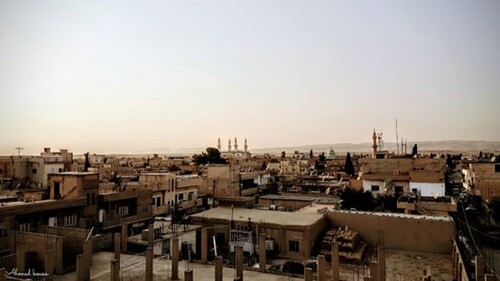
Several historical events
In 1936, the French bombarded Amouda with five jet fighters after the revolution of "Saeed Agha Daqori". On November 13, 1960, a catastrophic event happened in Amouda. Once again, they burned mothers' hearts, once again the enemy showed their tyranny against the Kurdish nation. This time they aimed to genocide a generation of the Kurds. During the Algerian revolution against the French in 1954, they asked all the students of a school to bring 25 Qrosh (a currency) to buy tickets for watching a film in the Shahrzar Cinema; the money however was sent to Algeria as financial aid. A number of 500 students were gathered in the cinema. The film began and after an hour of silence, the cinema was burned down. Among them, 284 children died in the fire. One of the victims was Mohammad Saeed Daqori, the man who rescued tens of those children from the fire. That is why, Amouda is known as Mohammad's father after that incident.
Amouda city is different from other cities in Kurdistan in two aspects; one is its great involvement with literature having several authors and poets. And the other aspect is that this city is known to be home to several distinct religious clans. There are several famous religions in Amouda with their own stories and distinctive characteristics.
Sources:
"Language Pen" Magazine
Photo: Rudaw Website

